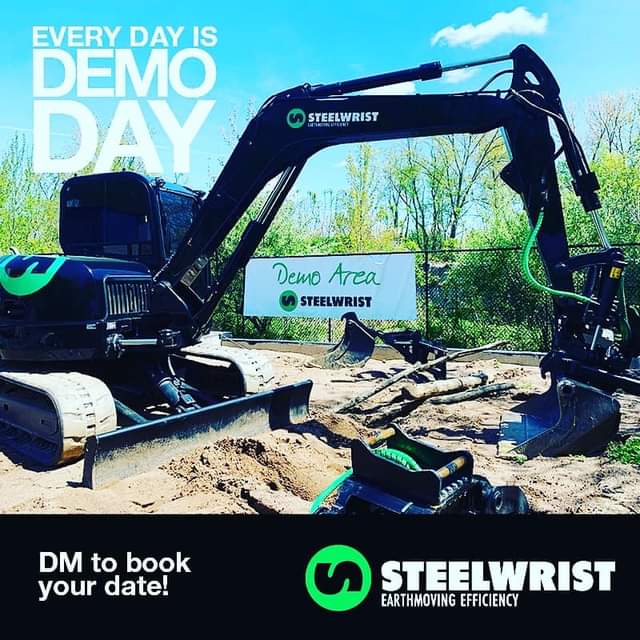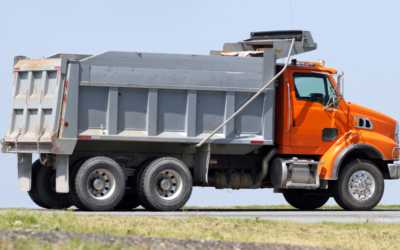Leasing vs. Financing: Why Choosing The Wrong Financing Tools Can Impact Your Business

Is it better to lease or to finance? Are you sitting there wondering how to decide between the two options? For many business owners stuck at this crossroads it can be difficult. Making the right decision may be crucial to your business and therefore this consideration requires your time and attention.
If you’re stuck in this dilemma, hold tight. We’re here to help you decide. We’ve put together a great article to help you carefully consider the two options of leasing vs. financing. Each of these options has its own set of benefits and you should aim to choose the option that best suits your circumstances.
This issue of choosing between leasing and financing is a headache. Making the right call between these two approaches can be overwhelming. Every business would like to have a range of equipment ready to deploy at any moment. Yet, very few businesses want to deal with the potential financial burdens.
This article is going to provide you with a detailed guide to the benefits and drawbacks of both leasing and financing. Spending the next five minutes reading through our research will save you time, money and energy in the future as you side-step roadblocks with the tools that we provide for you.

Leasing Advantages and Disadvantages
Let’s start with the option of leasing. There are two different types of leases: an operating lease and a capital lease. An operating lease is comparable to a rental agreement. You pay the lender in installments for the right to operate their piece of equipment, and the equipment remains the property of the lessor at the end of the term of lease.
A capital lease (also called a finance lease) is similar to a loan. The ownership of the equipment is transferred to the lessee at the end of the lease term. The lender will allow you to purchase the equipment based on its residual value. If you’re looking to have ownership of the equipment, this can be a really good option for you.
Leasing comes with a number of advantages, but it is also important to consider the disadvantages too. We want to help you to fully understand the pros and cons before you proceed to make any decisions. Let’s make sure you’re making the best choice for your situation.

Advantages and Disadvantages of Leasing
Advantages
- Leasing has lower upfront costs. In general, you won’t need to make a down payment for an equipment lease. You can reduce the initial amount of money you outlay. Compared to financing or purchasing the equipment, this reduction in initial outlay is a big advantage. Less of your working capital will be tied up in the equipment. You’ll have more money in hand to pay for your bills, buy inventory, and do your payroll.
- By leasing you’ll have a lower liability. Typically, lenders will not require you to provide any collateral or personal guarantees when you lease their equipment. This significantly reduces your liability as a business owner.
- You will benefit from greater flexibility. When your lease ends you will be given the option to end the contract or renew it. Additionally, some lenders may give you the option to purchase the equipment at its residual value. You can choose between renewing, ending, or buying the equipment at the end of the lease, providing you with different options and more flexibility.
- Leasing makes it easier for you to upgrade your equipment. When old equipment ages, it may become obsolete as it is replaced by newer and more efficient models. Leasing allows you to address this problem of using outdated equipment. You are free to upgrade and lease new and better equipment whenever your lease expires.
- Leasing entails less hassle. Lessors will typically cover the cost of general equipment repairs. You will save yourself the headache of dealing with maintenance and equipment upkeep.
Disadvantages
- Leasing means that you will not have ownership of the equipment. An equipment lease is comparable to a rental agreement (especially for operating leases). Unless you’re in a capital lease, your regular loan payments won’t go towards gaining ownership of the equipment.
- Leasing has higher associated costs. Most leases have higher interest rates than financing loans. This means that you could end up paying more money over the lifetime of the lease. Simply buying the equipment may prove to have less overall costs.
- During the term of the lease, there may be more restrictions. Lessors may place restrictions on how their equipment can be used or modified. In addition, you may not be able to end your lease early.
- Operating leases provide fewer opportunities for tax claims. These types of lease payments are considered operating expenses. It reduces the potential for your business to receive a tax break when you file your tax return. Whereas, a capital lease would allow your business to claim depreciation and interest.
Financing Advantages and Disadvantages
Let’s take a look at financing. Equipment financing is an amount of money borrowed for purchasing equipment. It is repaid with scheduled payments, and at the end of your financing, you will own the equipment. Most equipment financing are unsecured loans, and the equipment itself is the collateral to the loan. However, the lender may repossess the equipment if you fail to make your payments. Let’s dive deeper into the advantages and disadvantages of financing:
Advantages
- You will have ownership of the asset you finance. When you choose to do financing for your equipment, your payments contribute towards ownership of the asset.
- It is easier to qualify for equipment financing than most other types of business loans. The approval process for equipment financing is typically easier, because the equipment itself is the collateral to the loan. In addition, different types of financing options are available to businesses with minimal credit history and low credit scores.
- Equipment financing allows you to build credit for your business. By making scheduled, regular payments on your loan, you will be helping your business build credit. This will make it easier and cheaper for you to borrow again in the future.
- There are more opportunities for you to make tax claims if you choose the financing option. In terms of accounting, financed equipment is an asset. Business owners can claim tax breaks and credits for interest and depreciation.
Disadvantages
- Financing has higher upfront costs. Most lenders will need you to make a downpayment on your equipment loan. The amount required for the down payment will vary, but it can be up to 25%. This steep increase in your upfront costs requires careful consideration.
- You will need to pay for maintenance and repair costs on your financed equipment. Some equipment may come with a warranty but ultimately you will be responsible for the long term costs of upkeep once that warranty expires.
- You will need to deal with the possibility of using outdated equipment. If the term of financing for your equipment loan is over a long period of time, your asset may become outdated before you pay it off. Whilst you will own your equipment, you may need to contend with potentially newer versions that are cheaper and more efficient in the market.
Making the right decision for Financing vs. Leasing.
Now that you’ve seen the advantages and disadvantages of both leasing and financing, it is clear that making the wrong decision can lead to a number of issues. If you fail to fully consider both options, it is a recipe for disaster. The last thing you want is to find yourself in a situation where your cash flow is an issue, or be missing out on tax breaks, or worse. You don’t want to pick the wrong option and be placed in a position where you’re over-leveraged or unable to capitalize on the opportunities at hand. If you’re still dwelling over which option may be better for you, why not give us a call? We provide free consultations and we’re happy to help.
Get on the phone today and call 1 (855) 960 3743 or email info@simplelend.co. Together we’ll go through a fifteen-minute consultation to help your business find the right solution. Fifteen minutes on the phone with us and you’ll be saving yourself hours upon hours of headache by future-proofing your business. Let us help you anticipate and side-step issues that may arise. Simple Lend has a history of helping businesses make the right choices to suit their needs. We can help your business too. Together we’ll find the best option for you whether that is through financing or leasing.






